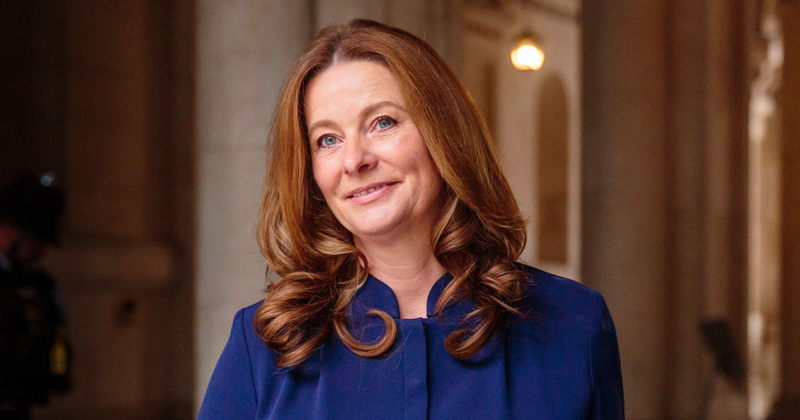Teacher pay awards should return to a “more sustainable level” than seen in the last two years, the government has told the School Teachers Review Body.
The Department for Education said it believes there is only headroom in budgets for the next financial year for schools to raise overall spending by 1.2 per cent, or £600 million.
Ministers have previously estimated that each 1 percentage point increase in teacher pay costs about £270 million – meaning the headroom would only allow for a pay rise of around 2 per cent.
The revelations suggest the government is gearing up for a fresh battle with unions, which have already voiced concerns ministers are seeking to “constrain” the STRB’s recommendations.
In her remit letter to the STRB in December, education secretary Gillian Keegan said the body must consider evidence on the “impact of pay rises on schools’ budgets” when making its recommendations for pay from September 2024.
In its evidence to the STRB, published today, the DfE went further, pointing out teachers’ average pay had risen by over 12 per cent over the past two years. Starting salaries have increased by 17 per cent over the same period.
The department also pointed to a doubling to £6,000 of levelling up premium payments to teachers of certain subjects, and said those who had also moved up pay bands in the last two years could have seen rises of up to 32 per cent.
‘Stable economy supports more sustainable pay rise’
They said the rises of 5 per cent for most teachers in 2022 and 6.5 per cent last year were “appropriate and the right decision to reward teachers and leaders for their hard work, to support recruitment and retention, and to continue to make teaching an attractive career”.
But the “wider economic context has moderated, with inflation more than halving from its peak in late 2022 and wage growth easing from the high levels seen in the summer of 2023”.
Inflation is forecast to average 2.1 per cent over the 2024-25 academic year, and an increase in unemployment is “expected to ease the level of vacancies across the private and public sector, supporting recruitment and retention”.
“Considering the above, it is the department’s view that the overall reward package for teachers, the recruitment and retention picture, and the more stable economic context support the return of teacher pay awards to a more sustainable level than the previous two historically high pay awards.
“The STRB should be mindful that pay awards achieve a careful balance between recognising the vital importance of public sector workers, whilst delivering value for the taxpayer and not increasing the country’s debt further.”
In analysis of schools’ costs for the current and next financial years, the DfE said it estimated mainstream schools could raise spending by a further 1.2 per cent in 2024-25.
That headroom would only allow for a pay rise of around 2 per cent, based on previous DfE estimates of the cost of rises.
In previous years, government has set out what percentage pay rise it believes is affordable, but has not done so this year.
‘Out of touch’
Geoff Barton, who leads the Association of School and College Leaders union, said the STRB “must now assert its independence – as it did last year – by recommending a pay award that addresses these issues and ensures that children and young people have the teachers they need.
“And the government must ensure schools can afford the pay award necessary for this purpose – beginning with the investment in education that is so clearly needed in next week’s spring budget.”
Paul Whiteman, general secretary of the NAHT union, said the evidence was “deeply concerning for professionals” and accused government of “abusing and undermining confidence” in the pay process with its late submission.
He said the point about a predicted drop in inflation “shows how out of touch ministers are”.
“They must wake up and realise that last year’s award is not anywhere close to the ‘correction’ needed – teachers and leaders need a series of competitive pay awards that restore over a decade of lost pay.”
‘Targeted remuneration’ by subject on the table
The DfE has also instructed the STRB to give its views on the “potential benefits, in principle, of targeting remuneration by subject in the future”.
Schools Week revealed in January last year that Keegan was keen on the idea.
As competition in the wider labour market “has made it more challenging to recruit and retain STEM teachers, the department is interested in understanding how it would be possible to go further than the current levers to target teacher reward to ensure a strong teacher supply”.
“This is why it would be beneficial to understand the potential effects of targeted remuneration to meet these challenges.”
The DfE asked the STRB to focus on “exploring the evidence base for targeted remuneration to inform further thinking on how this could help to alleviate subject specific recruitment and retention challenges and bridge the gap between teacher pay and outside graduate earnings”.
“Exploring targeted remuneration is a shift from the department’s current approach, which is why it is important that the STRB thoroughly consider both the merits and challenges, alongside other factors.”
















It’d be wonderful if they returned to more sustainable work flow for teachers as well… But that’s not going to happen, so teachers carry on pushing for better pay and conditions….
Totally agree.
I’d say about 7-10% will be enough to sustain experienced staff within the profession.
Keegan is talking about a managed decline in the value of a teachers pay. At the same time the government is putting more and more of societies duties and perennial responsibilities onto schools and hence the teaching staff.
Pity she does not apply the same logic to MP’s reward structures.
Well she would wouldn’t she.!!!Toeing the party line is expected if she wishes to retain her position. She should be fighting the Treasury for adequate settlements to education!